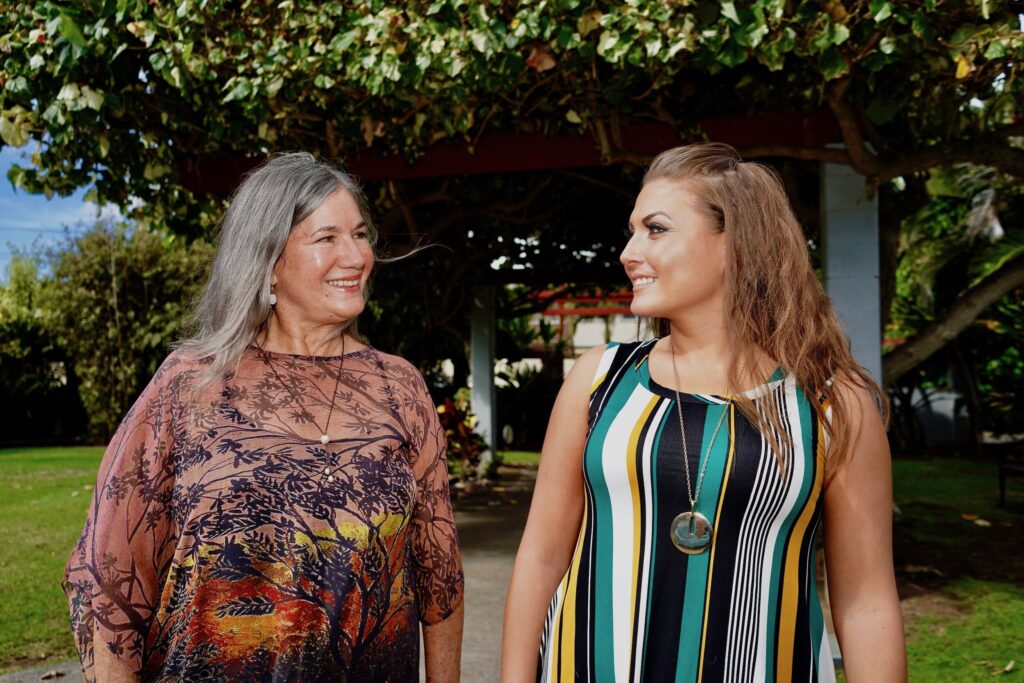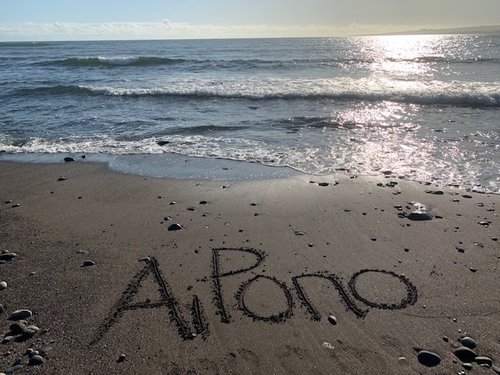Eating disorder recovery is the journey home to your true self.
What is Horticultural Therapy for Eating Disorders?
According to the American Horticultural Therapy Association, horticultural therapy [1] refers to involvement in horticultural (i.e., related to the art or practice of garden cultivation and management) activities in order to attain specific objectives within a treatment or rehabilitation setting.. It is an active process in which the process itself acts as the therapy, instead of the end result.
Specific to the treatment of eating disorders, horticultural therapy offers patients an opportunity to connect with the earth as a source of food and nutrition and re-explore one’s relationship with food and eating. Patients in our residential treatment program at ‘Ai Pono get to plant, care for, cook with, and consume various herbs, fruits, and vegetables- getting to play a more active role in nourishing themselves and their community.
‘Ai Pono Hawaii is a trusted eating disorder rehab center in Maui and one of the few eating disorder treatment programs to offer horticultural therapy for eating disorders. Our team of skilled and experienced therapists guide patients in “reaping” the many benefits of horticultural therapy for eating disorders and other co-morbid or associated conditions.
Why Is Horticultural Therapy For Eating Disorders Helpful?
According to the National Eating Disorders Association [2], approximately 10 million men and 20 million women in America alone will suffer from an eating disorder at some point in their life. Worldwide, approximately more than 3.3 million healthy life years are being lost every year because of ED. The Mayo Clinic warns that eating disorders can cause a variety of complications, including some that are fatal. In principle, the longer the ED lasts or the more severe it is, the more likely it is for the patient to suffer from complications such as malnutrition, anxiety, depression, social and relationship troubles, issues in school or work, or even suicidal thoughts or behavior
Fortunately, a variety of evidence-based therapies and treatment programs have been developed and employed throughout the past decades in different settings to help ED patients with their recovery. Horticultural therapy has more recently emerged as an effective complementary therapy for individuals struggling with disordered eating or eating disorders and its benefits are multifold.
Research has shown that gardening and caring for plants bring numerous benefits to one’s health. This is why horticultural therapy for eating disorders has been included more and more in treatment programs for ED and other mental health disorders.
Here are some of the psychological benefits of horticultural therapy (according to the American Horticultural Therapy Association):
Lowers anxiety and stress levels
Enhances relaxation and calmness
Improves sense of control
Boosts self-esteem
Improves sense of pride and accomplishment
Are you in need of treatment today? Talk with a professional today.
What Does Horticultural Therapy For Eating Disorders Involve?
Horticultural therapy has been employed by people for ages and the therapeutic effects of garden environments being recorded since ancient times. In the 19th century, Dr. Benjamin Rush — who was a signatory of the Declaration of Independence and regarded as the “Father of American Psychiatry” — became the first person to describe the positive effects that working in the garden had on people who were suffering from a mental illness.
During the 1940s and 1950s, the rehabilitation of war veterans greatly increased acceptance of this form of therapy. Today, horticultural therapy for eating disorders (and other mental disorders) has become known as an effective therapeutic modality that’s utilized in various rehabilitative, vocational, and community settings.
Horticultural therapy for eating disorders is used to help patients gain new skills or recover lost or forgotten ones. It also helps boost cognitive abilities, memory, language skills, task initiation, and even socialization.
Horticultural therapy is usually classified as a complementary medicine or therapy and employed along with orthodox medicine or conventional therapies. Aside from using horticultural therapy for eating disorders, it’s also used to treat patients with cancer, fertility problems, stress-related diseases, mild depression, anxiety, chronic pain, multiple sclerosis (ME), arthritis, irritable bowel syndrome (IBS), tinnitus, and more.
Some people assume that simply doing gardening work at home is already considered as horticultural therapy. However, although gardening by itself brings a number of benefits to a person’s health and wellbeing, horticultural therapy entails having therapeutic objectives, ideally guided by a specialist in this field.
Horticultural therapy for eating disorders is a component of ‘Ai Pono Hawaii’s holistic treatment program for ED patients. As one of the most trusted eating disorder treatment centers in the world, we have over three decades of experience in treating Bulimia Nervosa, Binge Eating Disorder, Avoidant/Restrictive Food Intake Disorder (ARFID), Anorexia Nervosa, and other eating and feeding disorders. We’ve also provided effective treatment to patients who struggled with Laxative Abuse, Body Dysmorphia, Body Image Distortion, and Night Eating Syndrome, among other related conditions.
In our center, we recognize that eating disorders result from the complex interplay of a person’s psychological, nutritional, emotional, and biochemical factors. We believe that people who suffer from ED are extremely sensitive and intuitive, but unluckily developed an unsound relationship with food in order to deal with the challenges that come with life. That’s why we begin by helping our patients recognize and embrace the adaptive advantage of their ED, which helps promote their recovery as they develop life skills that will help them say goodbye to their eating disorder.
Our treatment center for eating disorders offers three types of programs: residential, partial hospitalization, and intensive outpatient care. We conduct individual, group sessions, and family therapy depending on each patient’s unique treatment plan and level of care.
‘Ai Pono’s Horticultural Therapy For Eating Disorders
Horticultural therapy for eating disorders is a component of ‘Ai Pono Hawaii’s holistic treatment program for ED patients. As one of the most trusted eating disorder treatment centers in the world, we have over three decades of experience in treating Bulimia Nervosa, Binge Eating Disorder, Avoidant/Restrictive Food Intake Disorder (ARFID), Anorexia Nervosa, and other eating and feeding disorders. We’ve also provided effective treatment to patients who struggled with Laxative Abuse, Body Dysmorphia, Body Image Distortion, and Night Eating Syndrome, among other related conditions.
In our center, we recognize that eating disorders result from the complex interplay of a person’s psychological, nutritional, emotional, and biochemical factors. We believe that people who suffer from ED are extremely sensitive and intuitive, but unluckily developed an unsound relationship with food in order to deal with the challenges that come with life. That’s why we begin by helping our patients recognize and embrace the adaptive advantage of their ED, which helps promote their recovery as they develop life skills that will help them say goodbye to their eating disorder.
Our treatment center for eating disorders offers three types of programs: residential, partial hospitalization, and intensive outpatient care. We conduct individual, group sessions, and family therapy depending on each patient’s unique treatment plan and level of care.
Here are some reasons why you should consider exploring horticultural therapy for your eating disorder at ‘Ai Pono Hawaii:

1) Unparalleled Experience
Our clinical leadership has over 35 years of experience treating patients who struggle with all eating disorders including Anorexia Nervosa, Avoidant/Restrictive Food Intake Disorder (ARFID), Binge Eating Disorder, Bulimia Nervosa, and others. We are also competent in treating comorbid conditions that often exist with ED: anxiety, depression, Post-Traumatic Stress Disorder (PTSD), and Obsessive-Compulsive Disorder (OCD).
Our Founding Clinical Director, Dr. Anita Johnston, PhD, CEDS, is an esteemed expert in treating eating disorders and the author of Eating in the Light of the Moon: How Women Can Transform Their Relationship with Food Through Myths, Metaphors, and Storytelling (sold via Amazon).
2) Combining Evidence-based Treatment with Alternative and Holistic Therapies
Our horticultural therapy for eating disorders is a crucial component of our holistic treatment program. On top of horticultural therapy for eating disorders, we also offer these alternative modalities at our residential treatment center:
Music therapy (with ukulele lessons)
Art therapy
Ecstatic dance
Hawaiian cultural integration
…and more!
We provide Trauma-informed Care: specialized therapy for ED patients who suffer from trauma. Our therapies include Eye Movement Desensitization and Reprocessing (EMDR) and brainspotting.


3) Comprehensive Eating Disorder Treatment For All
We aim to provide eating disorder treatment to as many people as possible. We accept most insurances and are happy to work with individuals who are privately paying by reasonable offering payment plans.
We also provide support for veterans and military families as one of the only eating disorder treatment centers outside of the Veterans Affairs (VA) system that honors Veterans insurance. Our center is also in-network with Tricare to provide ED treatment to military spouses and children.
4) A Peaceful Setting
Finally, with our location in serene and scenic Maui, ‘Ai Pono Hawaii is an ideal setting for patients to heal. Our safe and cozy center, located far from the noisy and busy city, is the optimum place for ED patients to start changing their lives for the better as they recover from their eating disorder.

